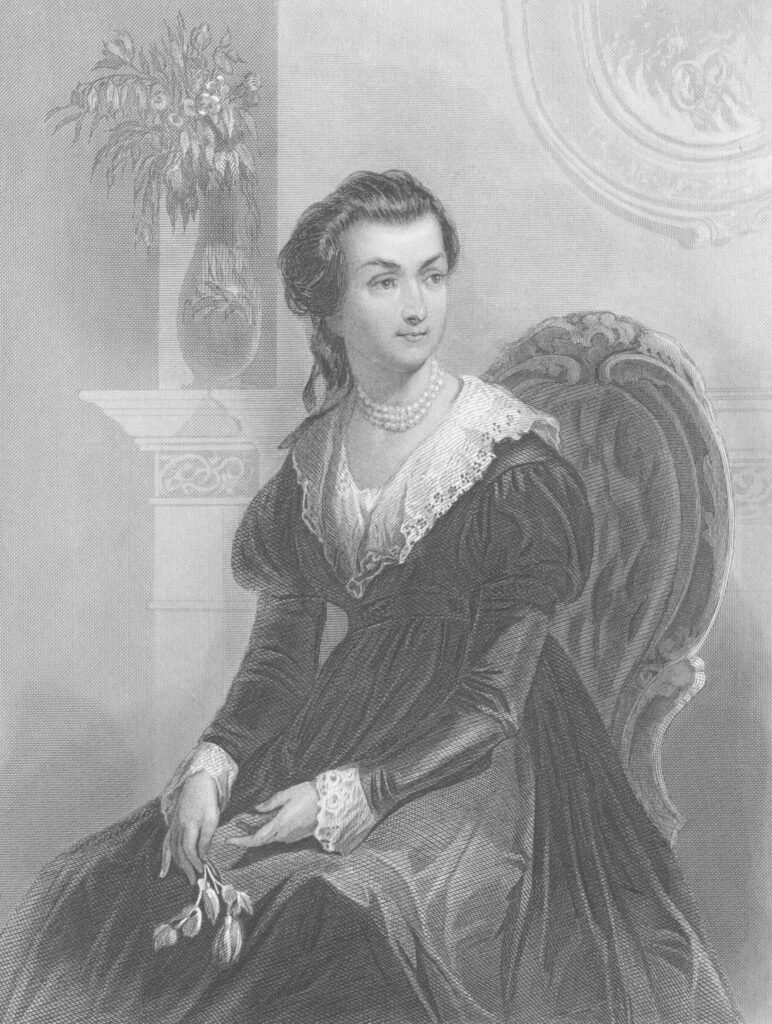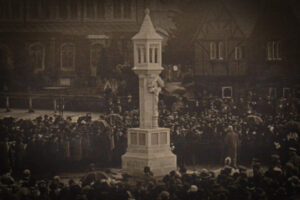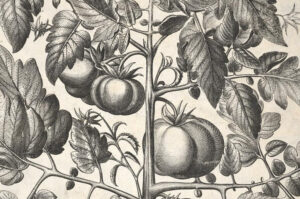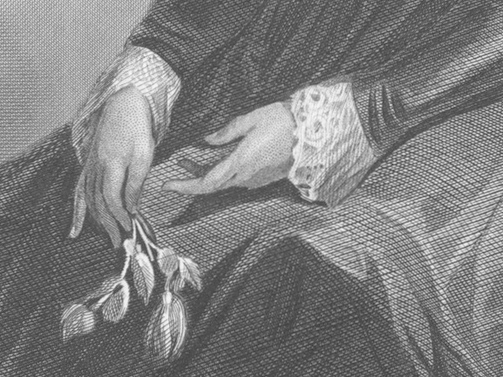
The Hero of John Adams Is Not John Adams

Mrs. Sarah Garone
As a woman striving for virtue and traditional values, it would be hard for me to name a contemporary inspiration quite like Abigail Adams. She is my surprising new heroine, my secular patron saint.
I often feel bombarded by the message that we must grab for power and demand our own terms, but Mrs. Adams’ strategy for obtaining influence was much like that of Jesus and other gentle leaders: a “power under,” rather than “power over.” Her service to others, faithfulness to her husband and children, and unflinching work ethic earned her a near-universal respect. Even those who disagreed with her couldn’t help but acknowledge her as a major player in the politics of her day. In a world that tells me to claw my way to the top, I’d rather follow Abigail’s quiet example.
My introduction to Mrs. Adams was a bit of a happy accident. In an effort to bone up on some history, I recently exchanged a precious Audible credit to listen to John Adams, David McCullough’s highly praised biography of our second president. But tuning in to the detailed story of our nation’s second first family, I was surprised to find my awe and respect growing not so much for the president himself, but for his supportive wife.
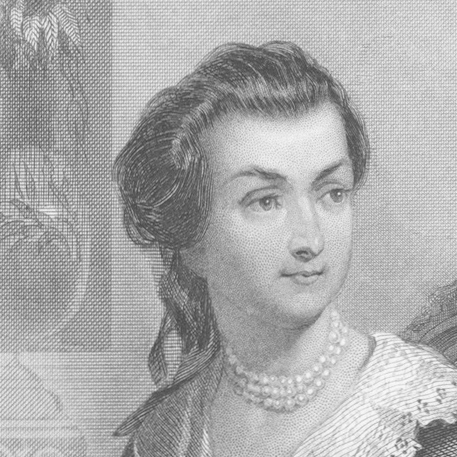 While Abigail Adams may have been a gentle force, she was not a doormat; the Adams’ relationship was clearly a partnership. As President Adams’ most trusted advisor, Abigail was referred to throughout his presidency as “Mrs. President.” John Adams asked for (and appears to have heeded) Abigail’s advice on many political decisions. She was perhaps one of the first advocates for women’s rights in the United States, frequently lobbying Adams to “remember the ladies” in his policy-making. And although Abigail wasn’t shy about giving her opinion, she clearly saw her role as one of steadfast support for her husband. “My good man” was her favorite nickname for the president as she defended him against his critics. Abigail understood the now-unpopular truth that supporting one’s husband is among the highest callings of wifehood.
While Abigail Adams may have been a gentle force, she was not a doormat; the Adams’ relationship was clearly a partnership. As President Adams’ most trusted advisor, Abigail was referred to throughout his presidency as “Mrs. President.” John Adams asked for (and appears to have heeded) Abigail’s advice on many political decisions. She was perhaps one of the first advocates for women’s rights in the United States, frequently lobbying Adams to “remember the ladies” in his policy-making. And although Abigail wasn’t shy about giving her opinion, she clearly saw her role as one of steadfast support for her husband. “My good man” was her favorite nickname for the president as she defended him against his critics. Abigail understood the now-unpopular truth that supporting one’s husband is among the highest callings of wifehood.
As President Adams’ most trusted advisor, Abigail was referred to throughout his presidency as “Mrs. President.”
Life was not easy for this remarkable woman. Throughout her marriage to John Adams, she lived apart from him for years at a time because of his diplomatic responsibilities in France, England, and Holland. During these long separations, Abigail oversaw the family’s finances, raised four children (losing two in infancy), and took on the monumental task of managing their remote New England farm. When a smallpox epidemic ripped through Massachusetts, Abigail and her children endured a process of inoculation that nearly killed one of them. Harsh winter weather sometimes made it impossible for Abigail to see another soul outside her own household for weeks at a time. All the while, communication from her husband was often extremely limited. Though Abigail had some complaints, her letters to Adams during these times are characterized not by self-pity, but by an incredible grit. Endurance and sacrifice remained hallmarks of Abigail’s character throughout her life.
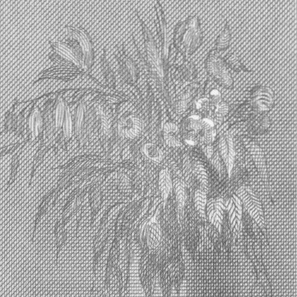 Despite her own troubles, Abigail demonstrated enormous kindness and compassion toward others. On several occasions she stepped in to help raise other people’s children, from Thomas Jefferson’s daughter Polly, to her own grandchildren when their alcoholic father became incapacitated. When she and Adams re-settled in Massachusetts after his presidency, she opened her home to friends and family for a weekly Sunday dinner for twenty or more. While living in Paris at the same time as Thomas Jefferson, the two households dined together so often they thought of themselves as one family. Hospitality — another virtue sometimes low on our totem pole — was clearly her strong suit.
Despite her own troubles, Abigail demonstrated enormous kindness and compassion toward others. On several occasions she stepped in to help raise other people’s children, from Thomas Jefferson’s daughter Polly, to her own grandchildren when their alcoholic father became incapacitated. When she and Adams re-settled in Massachusetts after his presidency, she opened her home to friends and family for a weekly Sunday dinner for twenty or more. While living in Paris at the same time as Thomas Jefferson, the two households dined together so often they thought of themselves as one family. Hospitality — another virtue sometimes low on our totem pole — was clearly her strong suit.
Abigail’s views on slavery also set her apart from many of her contemporaries. “I wish most sincerely there was not a slave in the province,” she wrote to Adams in 1776. “It always seemed a most iniquitous scheme to me — to fight ourselves for what we are daily robbing and plundering from those who have as good a right to freedom as we have.” Those weren’t merely words: Abigail took action to defend human rights. In 1791, when she became aware of a local black child being denied education, Abigail taught him to read and write herself. “Merely because his face is black, is he to be denied instruction?” she wrote to an objecting neighbor. “How is he to be qualified to procure a livelihood? Is this the Christian principle of doing to others as we would have others do to us?”
Abigail’s views on slavery also set her apart from many of her contemporaries. “I wish most sincerely there was not a slave in the province.”
Of course, Abigail wasn’t without her flaws. She supported the Alien and Sedition Acts, a series of controversial laws that limited American freedom of speech. When tensions ran high between the United States and France, she called for war — which very well could have been disastrous for the fledgling nation. And as forward-thinking as she was about race relations for her time, she wasn’t completely color-blind. Upon attending a production of Shakespeare’s Othello in London, she wrote that her “whole soul shuddered” at seeing an interracial relationship portrayed on stage — though she acknowledged with self-reproach that this feeling might have stemmed from “the prejudices of education.”
But despite Abigail’s imperfections, to me, she still shines as a bright light in the history of our nation, and as a northern star in my own twenty-first century life. As I look around my current landscape, I long for more heroines — women who inspire through faithfulness, service, and simple goodness. It is difficult to know where to look for women like this. Female social media influencers, celebrities, and politicians may make headlines and tout their own accomplishments, but these often ring hollow when not supported by underlying virtue and desire for the common good.
It is a rare and precious thing at the moment to find a woman in the spotlight who puts her faith and family first (probably, in part, because those women aren’t seeking the spotlight). It seems to me, though, that other eras of history have placed more value on these qualities. If I have to look to the past to find women who inspire and uplift, I’ve decided I’m alright with that. Although she may not have held the title of president, Abigail Adams was — and remains — a paragon of feminine leadership. In my own family, community, and work, I hope to employ her humble “power under” strategy to influence the world around me for good.
